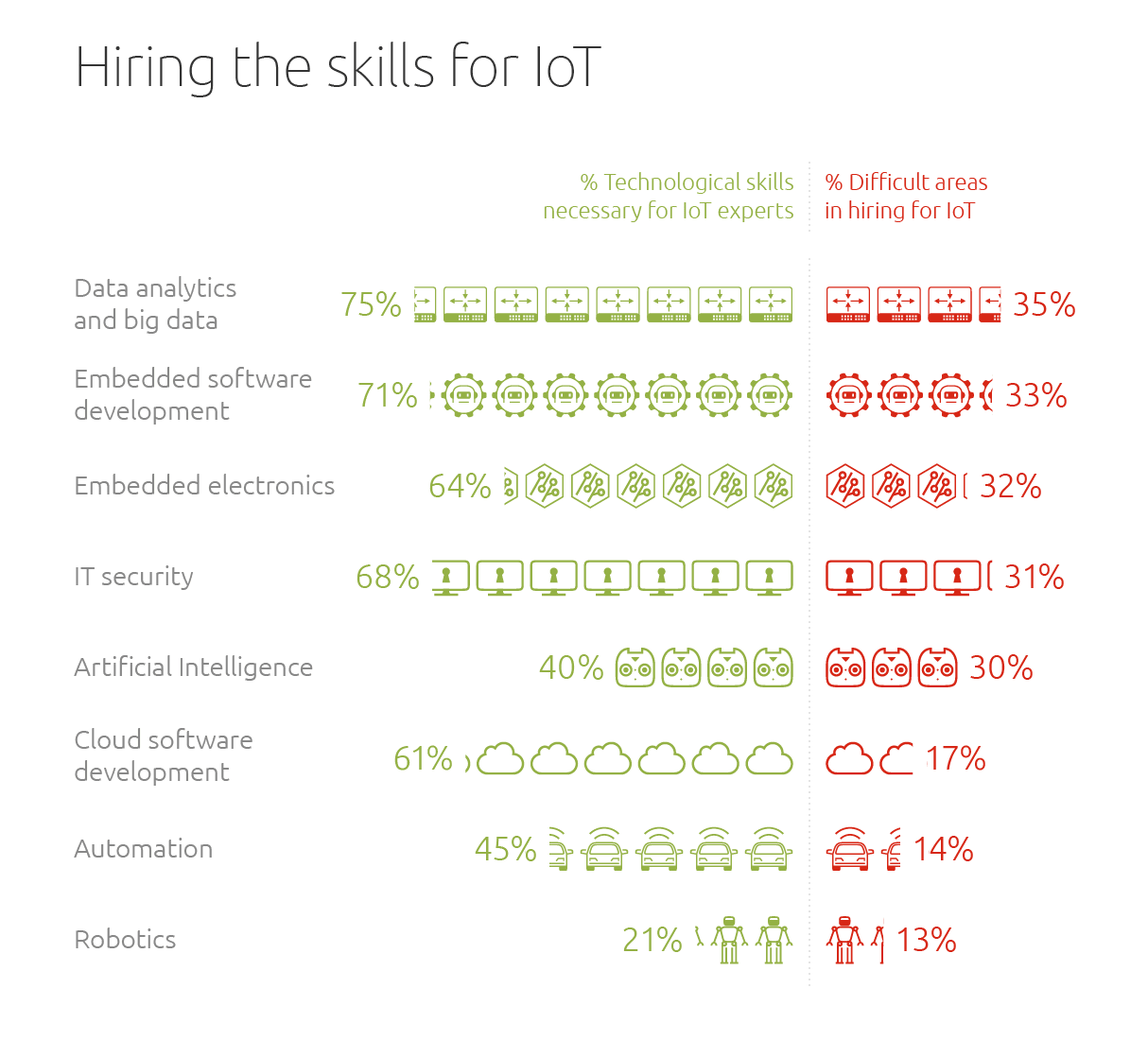Canonical
on 9 August 2017
68% of businesses are struggling to hire talent for IoT
Research from Canonical shows businesses are battling with drought in the “Internet of Talent” pool
London, 9th August 2017 – Businesses are struggling to recruit employees with the skills needed to make the internet of things a success according to a new IoT Business Models report from Canonical – the makers of the IoT operating system, Ubuntu Core.
The report, which includes research from over 360 IoT professionals, developers and vendors found that 68% are struggling to find and recruit employees with relevant IoT expertise.
According to Canonical’s research, the most difficult to hire IoT employees are those with knowledge of big data and analytics, with 35% of IoT professionals saying they struggle to recruit this skillset. Knowledge of big data and analytics was also identified as the most important skillset for IoT professionals, with 75% deeming it a necessity for anyone claiming to be an IoT expert. The next most hard to find skillsets for IoT professionals are knowledge of embedded software development (33%), embedded electronics (32%), expertise in IT security (31%) and an understanding of AI (30%). 
Commenting on these findings, Mike Bell, EVP of IoT and Devices at Canonical said, “When it comes to the internet of things, the business community is still overcoming a significant skills gap. Many businesses are concerned by their own lack of knowledge and skills within the IoT market and many business leaders are finding themselves running head first into a set of technology and business challenges that they do not yet fully understand.
“Businesses need to realise that working in IoT should not require such an extensive variety of skills. What is needed, instead, is a simplification of the technologies behind IoT. Within the next five years we expect to see IoT technologies built into all aspects of the business environment. As edge computing brings connected intelligence directly to the shop floor, cloud computing will continue to drive back-end processes across the entire supply chain, for example. With all business processes growing increasingly connected, their supporting IoT technologies must be easy enough for anyone to manage, monitor and use – regardless of their background knowledge or personal skillset.
“Above all, businesses must be agile when it comes to deciding on the ‘right’ people, skills and team to take them forward. What is decided upon today, is unlikely to remain the same in even one or two years, so constantly evaluating what change is needed and being able to execute this quickly is a must.” To find out more about the IoT skills gap, download Canonical’s Defining IoT Business Models report.
ENDS
Methodology
The Defining IoT Business Models report incorporates original research, commissioned by Canonical and conducted by independent industry publication IoTNow. The research surveyed 361 people from IoT Now’s database of registered IoT professionals.
About Canonical
Canonical is the company behind Ubuntu, the leading OS for cloud operations. Most public cloud workloads use Ubuntu, as do most new smart gateways, switches, self-driving cars and advanced robots. Canonical provides enterprise support and services for commercial users of Ubuntu.
Established in 2004, Canonical is a privately held company. For further information please click here.



